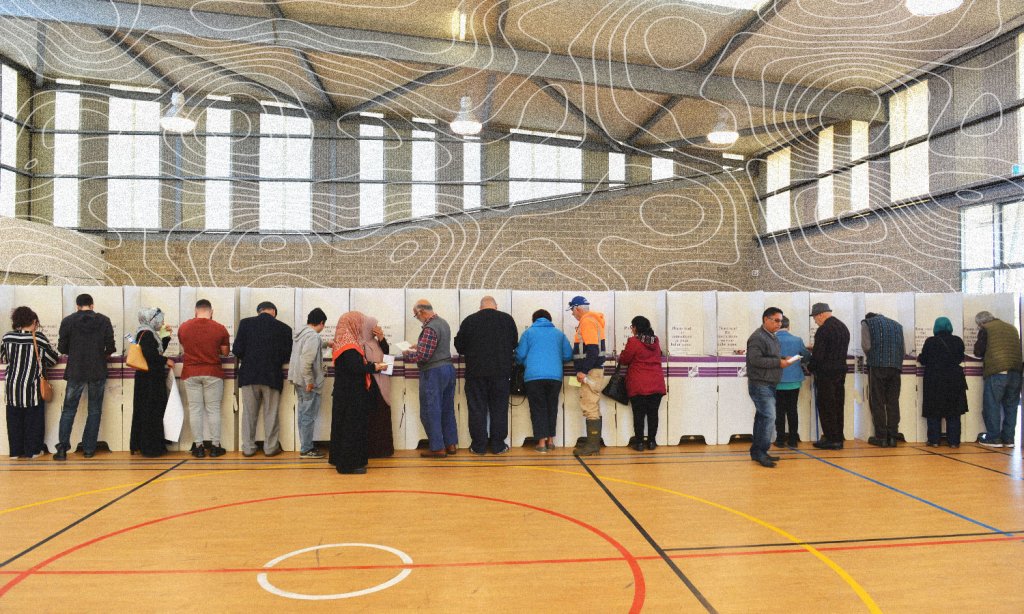The good people of NSW are limbering up to flex their democratic box-numbering muscles as the thrill of the state election 2023 is about to get underway.
The incumbent Coalition government is looking to secure a fourth term in power, with the Premier Dominic Perrottet fighting his first election after the resignation of Gladys Berejiklian in 2021. Labor Leader, Chris Minns, is also fighting his first state election.
In the run-up to this election, Perrottet and Minns have debated the role of public services, the cost of living crisis, the housing crisis, gay ‘conversion therapy‘, and the if the gambling industry needs regulating.
Polling has long indicated that the Coalition will be fighting an uphill battle in an effort to win this one but in recent weeks the contest has narrowed dramatically and many are now predicting a hung parliament as Labor look increasingly unlikely to gain the necessary 47 seats.
In addition to the Liberals, the Nationals, and Labor, 12 other parties are standing to contest the election, including the Greens, the Shooters, Fishers and Farmers, Animal Justice, and Legalise Cannabis NSW.
With just days to go before in-person voting opens, now’s the time to brush up on everything you need to know about the 2023 NSW state election.
When Is the NSW State Election?
State elections happen every four years and, this time around, NSW’s will be held on Saturday, March 25.
Ballots can be cast in person at a polling place from 8.00am until 6.00pm.
You can check to make sure that you are enrolled to vote by heading to the NSW Electoral Commission site here. You’ll also be able to find your district and nearest polling place by entering your address here.
You can also vote early, vote by post, or vote interstate if you’re going to be away from home that Saturday.
Is Voting Compulsory in State Elections?
All eligible people on the NSW electoral roll are required to vote.
Anyone who doesn’t will get an ‘apparent failure to vote’ notice, which can be appealed on a whole range of circumstances or taken to court. Otherwise, it will result in a $55 fine.
How to Vote in a State Election
Voting can be done in person, early, or by post.
Voting in person works just like Federal Elections. You’ll be handed two ballot papers; one a smaller, green paper with the names of the candidates hoping to represent you in the state’s Legislative Assembly or Lower House, and another, bigger, white sheet with a list of parties hoping to represent you in the Legislative Council or Upper House.
Each paper has to be numbered from one in order of preference. However, it’s a quirk of NSW voting that it’s entirely up to you if you want to vote for more than one party or candidate. Warning: If you don’t and your first choice doesn’t win an outright majority, your vote won’t be counted.
The large, Upper House paper can either be filled in above the line or below the line, depending if you want to vote for a party or individual candidates. Whatever you choose, don’t mix and match above and below-the-line voting. Otherwise your vote won’t be counted.
If you’re voting ‘below the line’, you have to number each candidate in order of preference, from any party or unaffiliated, one through a minimum of fifteen options.
Now, if you need help, there will be election officials around who are allowed to give you a hand. Alternatively, you can bring a friend, family member, or carer to the booth with you for assistance.
Once you’re done, pop your ballots in their respective boxes and head out to snag a democracy sausage.
Early Voting in State Elections
Early voting can be done in person at early voting centres. You have to be ‘eligible’ to vote early in NSW, which includes things like being away from home on the day, being ill, working, having a disability, or religious reasons.
Early voting centres opened on Saturday, March 18, around the state, although there are far fewer of them than you would find on election day. They close on March 24, the day before the election.
You can find a list of early voting centres here.
Postal Voting State Elections
Applications for postal voting have now closed so, if you didn’t register, you’re unable to vote by post in this election.
If you did register now, you should have already received your postal vote pack in the mail, as these have been sent out from March 13.
Those votes have to be sent back to the NSW Electoral Commission before 6.00pm on March 25, but they can arrive by Thursday, April 6.
Related: A First Nations Voice to Parliament: What Exactly Are We Voting For?
Related: Old Enough for War But Too Young to Vote: Why the Greens Plan to Lower the Voting Age
Read more stories from The Latch and subscribe to our email newsletter.







